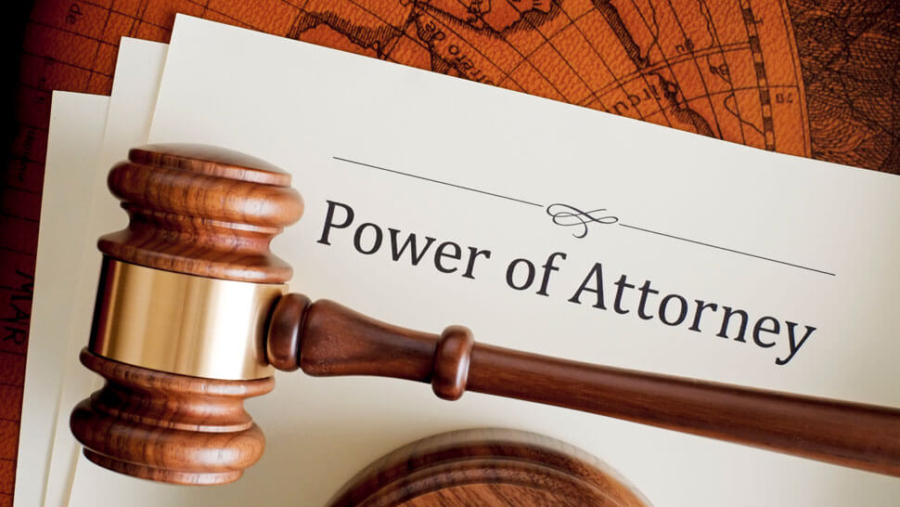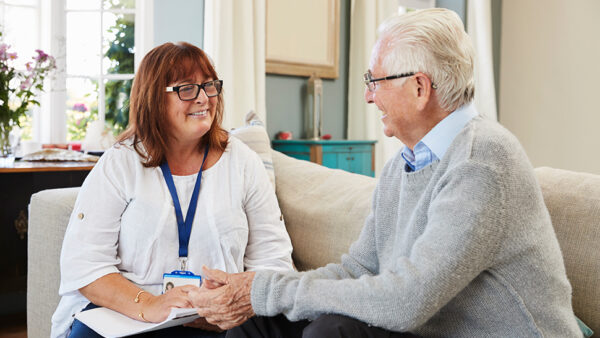

People going into care, or living in care, are often vulnerable to financial abuse – that might be because they have less access to easy management of their own money or perhaps their awareness of all the options is restricted.
Whatever their circumstances, there are well-established ways to protect yourself or someone you love from anyone taking advantage of their vulnerability.
How can a power of attorney help, and what are the different options?
Up-to-date powers of attorney, covering both financial matters and health and welfare matters are vital if you or someone you love is going into residential care. These ensure that these important decisions can be made by the people you trust.
If these are not already in place, do have an ordinary power of attorney put in place whilst the other documents were pending registration, as it gives the attorney scope to start acting for you.
What does an attorney need to know?
The person going into care and their attorney(s) should actively understand:
- where all the accounts are
- their current values
- what the person going into care is taking with them and what will remain, in a clear inventory.
The last point may seem odd, but, especially in current circumstances, if a loved one dies in care, their body is likely to be collected for an unattended funeral more quickly than usual. If you then find that you can’t find mum’s engagement and wedding rings, because she wanted to pass them down to you or another family member, without an inventory, you will not know whether they were with her or somewhere completely different.
What should an attorney do – how should they behave?
Choosing attorneys is the most important thing you can do – when you seek advice about your powers of attorney, your lawyer is likely to ask you about who you will choose and may well go into some detail with you. Acting as an attorney is a position of trust and responsibility. If you are appointed as an attorney, this is not an opportunity to rectify your own financial difficulties or start distributing someone else’s money so everyone “gets their inheritance early”.
Can I make my own powers of attorney without legal advice?
Yes, you can, and many people do. But if you are at all unsure about the process or about what the implications are, it would be wise to seek advice, especially if you feel concerned about who to choose as attorneys.
Your lawyer should make the attorneys’ duties clear, advise them on what their role extends to, prepare the documents powers with guidance within them and check your will to see who stands to benefit on death. Pursuing an attorney for possible financial abuse of an elderly person who has lost capacity, is extremely difficult and sometimes impossible, so it makes sense to ensure the right people are chosen from the start.
Who can make decisions about my care?
These decisions can only be made by another person who is your attorney under a health and welfare power of attorney or court order if you, at that stage, lack the capacity to make the decision yourself.
If you are elderly or physically frail, but still, but have all of your mental faculties intact, you can make all these decisions, including those on what treatment you receive.
It is absolutely not acceptable for any form of ‘do not resuscitate’ order to be made without your knowledge.
If you lack capacity, your doctor should make this decision with a family member and with others who have your best interests at heart.
If you are concerned about who has your best interests at heart, consider making an advanced decision. Click here to find out more.
What protection exists for vulnerable people dealing with day to day finances?
Vulnerability takes many forms – younger people with a disability or with physical or mental illness, or the bereaved, are all vulnerable.
One issue that many people struggle with is claiming benefits – it is estimated that anywhere between £10bn and £20bn is left unclaimed in means tested benefits in the UK. That’s a lot of people not getting the financial help they need.
Consider appointing someone who can secure you a benefits review and claim whatever you are entitled to for you. My colleagues and I offer this service to all clients for whom we act as a professional attorney or deputy. It is a very important role – the Office of the Public Guardian who regulate the conduct of financial deputies, has been known to apply for the removal of those who fail to deal with benefits properly.
I have someone else living with me – is there anything I should be aware of?
Any vulnerable person who allows a family member or lodger to live with them should make sure that they keep records of items that they buy for that person’s use. Then, if you are ever visited by a bailiff or creditor, you can show that bigger ticket items are actually yours, and don’t belong to your guest or lodger. Otherwise they risk being unfairly seized, creating unnecessary difficulty and stress.
Helping others – how far should I go?
It is tricky to judge how best to help someone who is deemed vulnerable but who is independent-minded, but being prepared to speak up will be the best option in the long term.
If someone faces eviction because their mental illness meant they couldn’t cope with rent payments, or if they have piled up debts because they couldn’t get the right advice at the right time, those are much tougher issues to deal with than a couple of awkward conversations early on.










